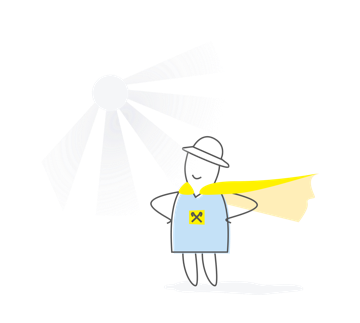Ukrainian - instead of Asian. Prospects for manufacturers
Every crisis provides new opportunities. Domestic manufacturers should try to partially replace Asian suppliers, especially Chinese suppliers, for Europe. In Ukraine, almost every second enterprise depends on imported raw materials or parts, and this is also a significant potential. We talked about how supply chains are changing, what forecasts and prospects exist, with Yekaterina Glazkova, executive director of the Union of Ukrainian Entrepreneurs.
According to your observations, do entrepreneurs suffer greatly from disruptions in the supply of imported raw materials / ingredients / parts?
One way or another, all domestic industries felt the influence of not only “our” quarantine, but also the anti-epidemiological measures taken by countries to combat the spread of coronavirus. Indeed, almost all manufacturers use imported components. Ingredients, diverse materials, components. Certain difficulties are connected with the fact that many factories in China have closed, and a number of countries have limited exports. As a result of quarantine, logistics has suffered worldwide. Even with the necessary goods, it is difficult to deliver them to Ukraine, albeit from neighboring Europe. So, there has been a massive disruption in the supply chain. For the most part, entrepreneurs from the Union point to delays in the supply of raw materials and parts. For example, a food industry company now has a delay in the supply of raw materials for 1-1.5 months, furniture accessories have to wait about a month, depending on the country of supply. The same manufacturers, which depend on components or raw materials from Italy and did not purchase them in advance, are now in a more difficult situation - while they simply can not deliver the necessary materials.
Can manufacturers replace imported components with domestic ones?
In this matter, I want to be optimistic. However, not all so simple. For some manufacturing enterprises in Ukraine there is simply no raw material, such as rubber, tea, certain types of wood. The most difficult thing in production working with “chemistry” is that we don’t produce a lot of chemicals and they don’t even have raw materials. Ukraine produces a lot of metal, but we import high-quality steel sheet. In addition, many entrepreneurs are convinced of the invariable quality of foreign raw materials / components, and some Ukrainian substitutes, in their opinion, cannot yet meet these requirements. Therefore, only certain types of industries can quickly switch to Ukrainian components. However, the industry will change after the crisis, and perhaps one of the directions of change will be precisely the planned import substitution.
Do domestic manufacturers have a chance against this crisis to squeeze out various Chinese, Turkish and other Asian products? What should be done for this?
It is clear that the consumer market after the crisis will change both around the world and in Ukraine. We will observe a tendency to move away from mass “dependence” on goods from China and similar suppliers of “consumer goods”. If you take a closer look, it is easy to notice that in the domestic market of consumer goods, especially food, there are a lot of Ukrainian products.
As for the competition of domestic goods with imports. The quarantine has closed the borders not only for finished products, but also, as we have already noted, imported raw materials and components. Therefore, in the short term, it will be almost impossible. These restrictions will be completed, but there are others. In some sectors, we observe legislative inequality - the raw materials that the company imports for the production of the Ukrainian value-added product are subject to VAT, but the finished products delivered from abroad are exempt from VAT. With the right strategic approach, the government could use the current situation not for artificial import substitution (although we assume that in sectors with urgent need, such as the pharmaceutical industry, such an approach should be), but to create infrastructural conditions for the quick start of new production, simplification business administration and deregulation. That is, ensuring an equal favorable environment for doing business, with market mechanisms for regulating and protecting property rights from the state. Then such a prospect really will be. Both in the domestic and EU markets.
92% of enterprises in various industries that took part in the survey of MES (80 manufacturing companies) are convinced that it is definitely possible to squeeze out foreign “consumer goods” using the situation. However, the state should contribute to this.
In your opinion, which industries, niches, markets will be promising during and after the new crisis? For whom does he not really hit, or maybe give a "green light"?
Any crisis has a negative impact on all areas of business, but for someone this factor becomes an incentive to rapid, albeit perhaps painful, changes. The decline in household incomes and consumer ability will not recover immediately, so the summer and, most likely, the fall of 2020 in Ukraine will not be easy for entrepreneurs from all spheres.
It seems that the pharmaceutical industry will change a lot in the near future and in the future. Naturally, great interest and prospects remain in the food and processing industry. In addition, now there are popular online services for trade, payment systems for payments on the Internet, delivery services, postal operators, production and trade of personal protective equipment, telecom industry and Internet providers. They will also continue to grow.
After the crisis, agro and agro-industrial complex will definitely be actively developing (especially after the opening of the land market), the pharmaceutical industry, the IT industry, especially solutions for organizing telecommuting and online interaction with clients, medical activities (especially when private clinics are allowed to practice infectious diseases) , entertainment services, air transportation.
It is worth watching how European markets will behave. Perhaps they will refuse Asian suppliers, and Ukrainian manufacturers will be able to take this place.
Where can I look for suppliers, affiliate programs?
One effective tool does not exist. Entrepreneurs primarily use international and Ukrainian exhibitions to search for partners and suppliers. This is not possible at the moment, so they often directly turn to foreign colleagues with offers of cooperation. Many new projects, even under quarantine conditions, are being implemented between participants in intersectoral business associations, such as EMS, EBA and the like. And although this is not our key area of work, we are creating programs and measures that can help businesses find partners. For example, in the SOUP there is a program “Buy from your own”. Within the framework of this program, each company-member of the Union can offer other participants special conditions for their goods or services. This information is open, it is on the site.
Is there a general “use Ukrainian” trend among businesses now, by analogy with “buy Ukrainian” in 2014-2015?
Let's be honest, there is no such active trend yet. There are few initiatives of activists and organizations in support of small entrepreneurs, such as “buy Ukrainian”. However, this has not yet received widespread support. And consumer support alone is not enough, in the current conditions this idea should become almost a strategic task of the state.
And the traditional question. Please share a few decisions on the topic of “how to stay afloat” that you apply in the Union.
You can’t imagine anything new here, the main thing to remember is that every crisis is an opportunity to review business processes and concentrate on the main thing. Within our organization, we have deduced the basic rules, which are given below.















